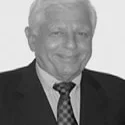Charles H. Hennekens, M.D., Dr.P.H., the first Richard Doll Professor and senior academic advisor to the dean in the Charles E. Schmidt College of Medicine at Florida Atlantic University is the brain behind ground-breaking research on the benefits of statins, aspirin, angiotensin converting enzyme (ACE) inhibitors, angiotensin receptor blockers (ARB) as well as beta adrenergic blockers.
Prof. Hennekens has published guidance for clinicians based on the guidelines from the American Heart Association and the American College of Cardiology that will assist clinicians to address the clinical and public health challenges related to the utilsation of statins in the treatment and prevention of heart attacks and strokes. These principles can help clinicians make the best judgment about whether to prescribe statins or not based on the risk profile of the patient as well as the benefits and risks of the drug. Hennekens and co-author Marc A. Pfeffer, M.D., Ph.D., Dzau Professor of Medicine at Harvard Medical School emphasise on the fact that there is no threshold for low density lipoprotein cholesterol below which there are no net benefits of statins.
“The evidence indicates clearly that the more widespread and appropriate utilisation of statins, as adjuncts, not alternatives to therapeutic lifestyle changes, will yield net benefits in the treatment and prevention of heart attacks and strokes, including among high, medium and low risk patients unwilling or unable to adopt therapeutic lifestyle changes,” said Prof. Hennekens.
Prof. Hennekens was the first researcher in the world to discover that aspirin prevents a first heart attack. He also was the first to demonstrate that aspirin prevents heart attacks, strokes, and cardiovascular deaths when given within 24 hours after onset of symptoms of a heart attack as well as to a wide variety of patients who have survived an event associated with a blockage in the heart, brain, or legs. HIs discoveries on aspirin are not limited to cardiovascular disease but also include the prevention of recurrent migraine headaches and the possibility of reducing the risks of colorectal cancer, delaying cognitive loss and reducing the development of type 2 diabetes.
From 1995 to 2005, according to Science Watch, Prof. Hennkens was the third most widely cited researcher in the world. In 2012, Science Heroes ranked Professor Hennekens No. 81 in the history of the world for having saved more than 1.1 million lives. In 2013, he received the “Fries Prize for Improving Health” and in 2014, he received the Alton Ochsner Award for his pioneering work on smoking and health. In 2015, he was ranked the No. 14 “Top Scientist in the World."
Source: Florida Atlantic University
Image Credit: Florida Atlantic University







